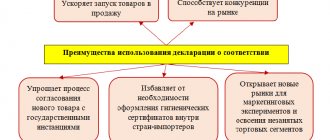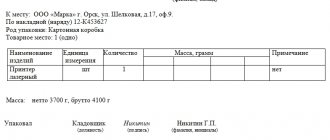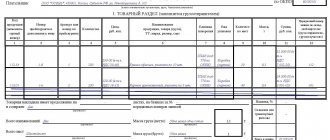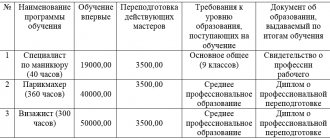Not all foreigners can afford to rent or buy a car to travel in a foreign country, and some simply do not want to leave their car unattended for a long time. The state understands this and therefore provides for the possibility of temporary import of vehicles (vehicles) into the territory of the Russian Federation. But, of course, not without restrictive conditions.
So, let's look at the rules for temporary import of a car, and also consider the features of registration and further use in various situations (for example, if you inherited a car or you are forced to move to Russia for permanent residence).
Features of temporary import of cars
Temporary import of cars from other countries is popular among Russians. The fact is that if there are foreign license plates on a vehicle, it is almost impossible to prosecute for traffic violations recorded by cameras. Even if there is a resolution, collecting money is extremely problematic. The fine system in this case began to be worked out two years ago, but has not yet been approved.
Also, other citizens who really want to drive a car only for a while should know the specifics of temporary import.
What are they:
- It all depends on what country the car is from. If we are talking about the countries of the Customs Union, maximum relaxations are provided for them.
- In some cases, you will have to pay customs duties or register the car with the traffic police. It all depends on the status of a foreign citizen in the Russian Federation, the cost of the vehicle, and other details.
- The period of temporary stay of a foreign car in Russia is strictly limited by law.
The fixed size of the recycling fee is relevant only if the transport is imported into Russia for personal use. In other situations, the amount is calculated depending on the engine volume in cubic meters. see according to established tariffs.
Let's consider each situation in detail.
Customs control. What you need to know when temporarily importing a car into the Russian Federation
This concept of “temporary import of a car” means the entry and further use of a vehicle registered in another country on the territory of the Russian Federation. In this case, the service life of the car is strictly limited by law.
Customs duties for temporarily imported cars are not paid. During temporary import, customs issues documents that give the right to drive a car for a strictly limited time for personal purposes.
What cars can be temporarily imported into the Russian Federation?
The import of vehicles from abroad is regulated by the Decree of the Government of the Russian Federation dated November 27, 2003. According to it, all passenger cars and minibuses in which the number of seats does not exceed 12 can be imported, including temporarily.
All temporarily imported vehicles must be used for personal purposes only.
A non-customs cleared vehicle is strictly prohibited from being used for production, commercial or other purposes that involve obtaining financial gain.
What to do with a car that has not been cleared through customs if the period of its legal use within the framework of temporary import is coming to an end? There are two options - the car either must leave the territory, or it will have to be registered according to the law, with the payment of all duties.
Who has the right to temporarily import a car into Russia?
Both citizens of other countries and Russians have this right. In this case, a Russian citizen must have with him documents for the vehicle that confirm its registration, a passport of a citizen of the Russian Federation, as well as documents confirming the right to own or drive the vehicle. In addition, you must pay customs duty.
As for foreigners, they must also present documents confirming the registration of the car abroad and the right to own or drive the car. A visa or entry permit is also required. Foreign citizens do not pay customs duties.
Russian citizens can import a vehicle for up to 6 months within one year. After this, the temporary import period can be extended or the car can be exported outside of Russia. Foreigners are allowed to import a car into the territory of the Russian Federation for up to 1 year.
Import by a person arriving for permanent residence, a migrant or a refugee
Let's consider a situation where a foreigner receives a refugee certificate in Russia and arrives in his own car. If a migrant, refugee or person moving for permanent residence crosses the border of the Russian Federation in his vehicle, he has the right to import one car and one trailer without customs clearance. For additional vehicles you will have to pay the full duty.
An important point is that a car that is imported without paying duties must be registered in the territory of the state from which the owner arrived no later than 6 months before arriving in Russia. In addition, the car can be imported no later than 1.5 years after the owner moves to Russia.
The car must be registered, since it is imported into the Russian Federation for a permanent period of stay.
If a car is brought into Russia by a refugee, migrant, or participant in a resettlement assistance program, the recycling fee is not paid.
As for transferring the car to other persons, there are no restrictions on the operation of the vehicle, that is, it can be transferred to the control of other people.
Please note that if a recycling fee was not paid when importing a car, then after the sale its new owner is obliged to pay the specified fee.
Importing a car that was inherited
For example, a Russian citizen inherited a car on the territory of another state and wants to temporarily transport it to Russia for personal use. In this case, a Russian citizen can import one car and one trailer without customs clearance if they were received by him as an inheritance. For other vehicles you will have to pay the full duty.
The car is subject to mandatory registration as imported for permanent stay.
The disposal fee is paid in the amount of 3,400 rubles.
There are no restrictions on the operation of a vehicle received by inheritance and legally imported into the country.
Procedure for obtaining temporary import of a car
The car owner can receive a UVTS certificate (vehicle import certificate) directly at the customs post after passing customs control. To do this, you need to fill out a declaration, provide all documents, and also issue a compulsory MTPL insurance policy.
Thus, the place of registration of UVTS is the customs post through which the car owner and the car enter the territory of Russia. If it is necessary to extend the period of stay of a vehicle in the country, the owner must visit the regional customs office at the place of stay.
List of documents that will be needed for registration of UVTS:
- passport;
- a document confirming the right to own or drive a car;
- a valid MTPL car insurance policy for the entire duration of the car’s stay in Russia;
- customs declaration form TD-7 In addition, the car must be declared.
To submit the declaration you will need the following documents:
- civil and foreign passport of the car owner;
- foreign registration certificate for the car;
- a document confirming the fact of purchase of the vehicle;
- customs declaration TD-6.
Can they refuse to temporarily import a car into Russia?
Customs officers may prohibit the import of a vehicle into the territory of the Russian Federation if they have reason to believe that the owner cannot guarantee compliance with the laws of the Russian Federation.
Simply put, customs officers have a suspicion that the car is stolen, the documents do not meet the requirements, etc. Attempts to import a stolen car into Russian territory are by no means uncommon, so customs officers are suspicious of citizens who are trying to import a car and carefully check all documents .
The basis for refusal may be, for example, the absence of a receipt for paying taxes, or a disorder with documents confirming the right to drive a vehicle.
What to do if a temporarily imported car cannot be removed on time?
There are force majeure situations due to which it is impossible to take the car out of Russia within the time limits established by law. This could be an accident, theft, breakdown or other reason. In this case, you must immediately submit an application to the Federal Customs Service (FCS), on the basis of which the temporary import of cars will be closed.
In this case, all the necessary data is transferred to the customs department that issued the UVTS. The information must be received by customs no later than 15 days from the date of expiration of the UVTS.
If the information does not reach the customs authority within the prescribed period, the vehicle will be marked in the database as not exported. In other words, the car will be put on the wanted list. For the car owner, this is fraught with a substantial fine.
Importing a Customs Union vehicle
The interaction of the CU countries is regulated by the EEC Customs Code, as well as the Decision of the Council of the Eurasian Economic Commission “On certain issues related to goods for personal use.” If the car is registered in any of the countries that are part of the Customs Union, you do not need to pay customs duties or recycling fees. Registration with the traffic police is not required, regardless of the length of stay in the Russian Federation.
Which states are included in the CU:
- Kazakhstan.
- Armenia.
- Belarus.
- Kyrgyzstan.
- RF.
For example, if a person comes by car from Belarus, he can drive around Russia as much as he wants without paying any fees.
Documents for customs clearance for temporary import under Art. 37 TC EAEU
To use this mode, legal entities and individual entrepreneurs need an expanded set of documents:
- statement. In the application for temporary import, it indicates the expected period of stay of the products on the territory of the EAEU, as well as the circumstances and purposes of import;
- letter of guarantee for return export. Establishes obligations for re-export of temporarily imported goods;
- invoice;
- technical passport or technical description of the product;
- packing list;
- information and documents necessary to identify the goods;
- waybill;
- documents confirming payment of customs clearance fees.
The customs authority may request information and documents not included in the main list. will help prepare documents and ensure customs clearance of goods during the temporary import procedure.
Import of a car by a citizen of the Russian Federation
If a citizen of the Russian Federation lives in a foreign country, he has the right to arrive in a car registered there. But you will have to pay customs duty. As for registration with the State Traffic Safety Inspectorate, it is not required for stays in Russia of up to 1 year. If it is larger, you will have to register the vehicle.
Not only the owner, but also members of his family: spouse, children, parents have the right to drive a car from a foreign country. Also, as a general rule, maintenance and repair of vehicles is allowed if we are talking about unauthorized persons. It is prohibited to transfer control to citizens who are not relatives.
Example:
A citizen of the Russian Federation lives in France. He decided to visit his relatives for two months in his own car, registered at his place of residence, in Russia. In this case, he needs to pay a fee, but he does not have to register the car.
Procedure for registration of UVTS
The procedure for border clearance of cars on a duty-free basis requires the collection of documents to certify the import of the vehicle. To do this, fill out an official form according to the established form issued by the customs officer. It is prohibited to use the car without a vehicle import certificate. The document must be presented by the driver to any traffic police inspector upon his request.
In general, there is nothing complicated about how to import a car into Russia without customs clearance. This certificate is filled out at the border control point. The validity period of the document will correspond to the length of stay of a citizen of a foreign state on the territory of the Russian Federation, but not more than a year. In the future, the documents will need to be renewed at the customs office at the place of registration.
When a car owner leaves Russia, he is obliged to hand over the UVTS to border control officers. During your subsequent trip, you will have to register for the temporary import of the car again. The procedure may be very different for representatives of EAEU member countries.
If the owner of the vehicle lives in the Russian Federation for a long time and operates his car, it will have to be registered with the State Traffic Safety Inspectorate. There are several important nuances in how to clear a car from Belarus through customs. The duty-free procedure is carried out in the following cases.
- The car must be produced on the territory of the Republic or any other member of the EAEU.
- If the foreign car was brought to Belarus before 2010.
- In cases where the vehicle was cleared through customs in the Republic of Belarus, and the amount of duties was not inferior to or exceeded the amount that would have to be paid during customs clearance in Russia.
You can import a car without making tax payments only for personal use. The following states are parties to the EAEU customs agreement:
- RF;
- Belarus;
- Kazakhstan;
- Kyrgyzstan;
- Armenia.
For other states, even those from the former USSR republics, general rules apply. Thus, in order to transport a car from Lithuania without customs clearance for a period of more than a year, special conditions are required: refugee status or participation in the program for the return of Russians to their historical homeland.
Read also: Features of customs clearance of cars from Lithuania
Temporary import involves declaring the vehicle at the border checkpoint and at the customs department. To do this, you need to prepare a package of documents:
- fill out a declaration in form TD-6;
- present a foreign registration certificate;
- contract of sale;
- insurance;
- your own passport (both domestic and foreign).
Simultaneously with the registration of the UVTS, it is necessary to conclude a compulsory motor liability insurance agreement. Its validity does not expire with the return of the temporary import certificate. Thus, the policy can be used until the end of its validity and upon subsequent entry into Russia.
Where can I apply?
The procedure is carried out at the border checkpoint. The place of registration and issuance of UVTS is the customs post. You will also need to return your ID here after leaving Russia. You can extend your permit at the customs office in the region where the car owner is located. There is no need to visit the traffic police department to register a car with foreign license plates.
Importing an inherited car
Inheritance of a vehicle is carried out according to the laws of a foreign state, but when importing, one should be guided by international laws and regulations of the Russian Federation.
When crossing the border, you will need documents confirming the basis for the emergence of ownership rights.
Payment of customs duties
If one inherited car and a trailer in the same quantity are imported into Russia, customs clearance is not needed. In other cases, you will have to pay in accordance with the established tariffs.
Example:
A citizen of the Russian Federation inherited two cars in Germany. When crossing the border, he only needs to pay a fee for one of them.
There are no restrictions on use. Any person can ride the vehicle with the permission of the owner.
Recycling collection
The amount of such a fee is fixed and amounts to 3,400 rubles.
traffic police
In the case of inheritance, temporary import of a car into Russia is not relevant - the car is imported here on a permanent basis. It must be registered with the traffic police within 10 days from the moment of crossing the border.
Example:
A citizen of the Russian Federation inherited a car in Finland. Having completed all the documents there, he decided to return to Russia by car. In the process, he had to pay a recycling fee, and he is exempt from customs duties by law. Registration is required; for this you need to contact the traffic police.
Transportation regulation
The provision of cargo transportation services requires a branch of a foreign company to comply with relevant rules, transportation requirements and conditions.
Before transportation, the shipper must present to the representative of the contractor (forwarding driver) all documents for the goods, passes and permits that give the right to travel to the places of loading and unloading operations. In addition, the contents must be prepared for transport in accordance with regulations. After all, violation of the established rules can affect the presentation, lead to damage, violation of physical and technological properties, as well as loss of goods or raw materials.
Since you plan to carry out cargo transportation on the territory of the Russian Federation, you should take into account the requirements for transportation that are established by the norms of Russian transport legislation, Chapter 40 of the Civil Code of the Russian Federation, as well as other regulations depending on the classification of cargo.
According to Article 784 and Article 785 of the Civil Code of the Russian Federation, the transportation of goods and luggage is carried out on the basis of a contract of carriage, under which the carrier undertakes to deliver the cargo entrusted to him by the sender to the destination and hand it over to the person authorized to receive the goods (recipient), and the sender undertakes to pay for the transportation cargo the established fee. The conclusion of a contract for the carriage of goods is confirmed by the preparation and issuance to the sender of the goods of a consignment note (bill of lading or other document for the cargo provided for by the relevant transport charter or code).
At the same time, clauses 1-3 of Article 8 of the Federal Law of November 8, 2007 No. 259-FZ “Charter of Road Transport and Urban Ground Electric Transport” stipulate that the conclusion of a contract for the carriage of goods is confirmed by a waybill. The consignment note, unless otherwise specified in the contract for the carriage of goods, is drawn up by the shipper.
Decree of the Government of the Russian Federation dated April 15, 2011 No. 272 approved the rules for the transportation of goods by road (hereinafter referred to as the Transportation Rules).
Transportation rules establish the procedure for organizing the transportation of various types of cargo by road, ensuring the safety of cargo, vehicles and containers, as well as the conditions for transporting goods and providing vehicles for such transportation.
Based on clause 63 of the Transportation Rules, the carrier delivers and releases the cargo to the consignee at the address indicated by the consignor in the waybill, and the consignee accepts the cargo delivered to him. The carrier delivers the cargo within the period established by the contract for the carriage of goods.
In order to ensure road safety, maximum permissible values for the weight and dimensions of vehicles have been established. Thus, Appendices 1, 2, 3 to the Transportation Rules regulate the permissible masses, axle loads and dimensions of vehicles (with or without cargo) driving on public roads of the Russian Federation. If such parameters are exceeded, the vehicle is classified as large and (or) heavy and its further movement on public roads of the Russian Federation is permitted subject to the availability of a special permit issued in accordance with Order of the Ministry of Transport of the Russian Federation dated July 24, 2012 No. 258 “On approval The procedure for issuing a special permit for the movement of a vehicle transporting heavy and (or) large-sized cargo on roads” and payment for damage caused to roads in accordance with the Decree of the Government of the Russian Federation of November 16, 2009 No. 934 “On approval of the Rules for compensation for damage caused vehicles transporting heavy cargo on the roads of the Russian Federation.”
At the same time, in accordance with the legislation of the Russian Federation, a vehicle (with or without cargo) is considered heavy both when it exceeds the maximum permissible weight and when it exceeds the maximum permissible axle load. Also, when carrying out activities for the transportation of heavy cargo, you should be guided by clause 75 of the Transportation Rules, which establishes the specifics of transporting divisible cargo by road.
The procedure for issuing special permits for the movement on highways of vehicles transporting dangerous goods within the country is established by Order of the Ministry of Transport of the Russian Federation dated July 4, 2011 No. 179 “On approval of the procedure for issuing a special permit for the movement of vehicles transporting dangerous goods on highways.” cargo."
Import of a car by a foreign citizen
If a foreign citizen wants to come to Russia for a while, it is also important for him to know certain rules regarding duties, registration and fees.
Driving a vehicle is permitted only to the foreigner who imported it or another citizen of a foreign state. Citizens of the Russian Federation can operate the car only during maintenance or repair.
Customs duty
The fee is paid only if the period of stay exceeds 12 months. In other situations there is no need to pay it.
Recycling collection
Here, too, the timing of import of the car is of primary importance. If it does not exceed 1 year, there is no need to pay a fee. In other cases, 3,400 rubles are paid.
traffic police
If a foreigner imports transport into the Russian Federation for a period of up to 12 months, it is not necessary to contact the State Traffic Safety Inspectorate for registration. If the period of stay exceeds 1 year, you need to obtain temporary registration. If necessary, it can be extended later.
Example:
A foreign citizen from Germany came on a business trip to the Russian Federation in his own car. The duration of the trip was 6 months. In such a situation, he does not need to register the car with the traffic police, pay a recycling fee and customs duties. However, during his stay in Russia, the business trip was extended for 1.5 years, and he had to do all of the above.
Export and customs clearance of a car to Ukraine
| A country | Car price in national currency | Price in dollars |
| Russia | 6,300,000 rubles | 80 674 |
| Ukraine | 2500000 hryvnia | 88 324 |
The benefits are visible immediately! It will be much cheaper to drive and clear a car from Russia than to buy it in Ukraine!
This is used by many buyers and businessmen for not only cars.
We regularly receive orders for customs clearance and export of cars from countries such as Ukraine, Germany, Czech Republic, Moldova, Belarus, France, Spain, Italy, Lithuania, Latvia, the Netherlands, Dubai, Bulgaria and many other countries, and such cars are exported like Mercedes, including the often legendary Gelendvagen, BMW, Ferrari, Maserati, Lamborghini, Range Rover, Maybach, Bentley, Rolls Royce, Bugatti, etc. (Mersedes Gelandewagen, BMW, Ferrari, Maseratti, Range Rover, Rolls-Royce, Maybach, Lamborghini, Bentley, Bugatti).
Import of a car by a refugee or migrant
A refugee is a foreign citizen who has received an appropriate certificate in the Russian Federation. As for migrants, these include people participating in the Russian program for the resettlement of compatriots from other states.
Refugees and internally displaced persons can import one car and one trailer into Russia without customs clearance. If there are more vehicles, a duty is paid. In any case, you will have to register them with the traffic police, because... in fact, they are imported on an ongoing basis.
Both categories of citizens are exempt from paying the recycling fee. It will have to be paid only after the sale, and then to the new owner. But there are requirements for the cars themselves: they must be registered in other states for at least six months, and import is allowed only one and a half years after receiving a migrant or refugee certificate.
What documents are needed for temporary import of a car into the Russian Federation?
The list of documents depends on who exactly is crossing the border.
A foreign citizen will need:
Dear reader! Didn't receive an answer to your question? Our expert lawyers work for you. It's absolutely free!
- Moscow ext 152
- St. Petersburg ext 152
- All regions ext 132 (Toll free)
- Passport.
- A valid visa.
- Temporary residence permit or temporary registration.
- Registration certificate, notarized power of attorney, other title documents for the car.
- Original declaration.
A Russian citizen residing in another state on a permanent basis will need the same. Additionally, they are provided with a sticker indicating consular registration at their place of permanent residence, as well as a foreign passport.
How much does customs clearance of a car cost?
The cost of customs clearance depends on the “age” of the vehicle, its value and engine size. The uniform rates were approved by Decision of the Council of the Eurasian Economic Commission dated December 20, 2017 N 107.
The “age” of a car is counted from the moment it leaves the factory. Let's look into it in detail.
If the car is no more than three years old
The amount of duty is calculated according to the following tariffs:
| Cost of the car in thousand euros | Fee 1 | Duty 2 for each cm3 of engine displacement (euro) |
| 8,5 | 54% | 2,5 |
| 8,5-16,7 | 48% | 3,5 |
| 16,7-42,3 | 5,5 | |
| 42,3-84,5 | 7,5 | |
| 84,5-169 | 15 | |
| From 169 | 20 |
When calculating, you need to choose the largest value. For example, if 48% of the cost of the car is less than the amount calculated depending on the engine size, the second option is applied.
Calculation example:
A 2021 BMW X5 is being imported into Russia from a foreign country. Working volume – 2,998 cubic meters. see The car is less than three years old. cost – 70,000 euros.
The first option for calculating the price:
70,000 x 48% = 33,600 euros
The second calculation option based on engine volume:
7.5 x 2,998 = 22,485 euros.
In this situation, you need to pay a large fee under the first option - 33,600 euros.
If the car is between 3 and 5 years old
For cars of this “age” the calculation is made differently:
| Engine capacity in thousand cm3 | Euro per cm3 |
| Up to 1 | 1,5 |
| 1-1,5 | 1,7 |
| 1,5-1,8 | 2,5 |
| 1,8-2,3 | 2,7 |
| 2,3-3 | 3 |
| From 3 | 3,6 |
Here only the engine size is taken into account. Example:
A Mercedes-Benz S 350CDI is being imported into Russia; it is 4 years old. The cost is 38,000 euros, and the engine capacity is 2,987 cc. cm.
How to calculate:
Customs clearance will cost 2,987 x 3 = 8,961 euros.
If the car is older than 5 years
Such tariffs apply regardless of how many years ago the car was produced - 5 or 15 years:
| Engine capacity in thousand cm3 | Euro per cm3 |
| Up to 1 | 3 |
| 1-1,5 | 3,2 |
| 1,5-1,8 | 3,5 |
| 1,8-2,3 | 4,8 |
| 2,3-3 | 5 |
| From 3 | 5,7 |
Example:
The car was produced in a foreign country 15 years ago, Mercedes-Benz A 140 Classic spirit. Engine – 1,397 cc. cm.
How to calculate:
1,397 x 3.2 = 4,470, 4 euros total payable.
Responsibility for breaking the law
If the generally accepted procedure for importing unregistered vehicles into the territory of the Russian Federation is not followed, the driver will face penalties in the amount of customs duty. The offender’s car itself will go to the traffic police parking lot, where it will remain until its owner pays all financial penalties.
Advice! Therefore, if you want such a punishment to cost you as little as possible, it is better to pay the state duty on the very first day the car is seized. After all, for every day the car is parked, you need to pay an additional 300-600 rubles (depending on the region).
We looked at how the temporary import of cars from Europe to Russia takes place in 2021 for Russian citizens and foreigners. Moreover, these transportation rules are no different for right-hand drive vehicles, whose owners are accustomed to driving on the other side of the road. The only nuance in the entire procedure of crossing the border by personal transport is compliance with time restrictions on the validity of the customs permit.
When to register a car temporarily
Temporary registration of a vehicle with the traffic police is necessary in several cases:
- If it belongs to a foreign citizen.
- If the car is used under a leasing agreement.
- If the transport is imported into the Russian Federation for a period of one year or more.
Registration also applies to those who took out cars on credit. In addition, if the registration requirement is violated, the driver may be subject to administrative liability and deprived of his driver’s license, or fined 5,000 rubles.
How to register a car temporarily
Temporary entry into Russia by car for up to 1 year does not require registration with the State Traffic Safety Inspectorate. If the period exceeds 12 months, you need to register for at least six months. To do this, you should contact any traffic police department with the following documents:
- A purchase and sale agreement or other document confirming the basis for the emergence of ownership rights.
- Leasing agreement (if any).
- PTS.
- A document confirming the passage of customs control.
A residence permit or temporary residence permit is required.
The whole procedure looks like this:
- A citizen makes an appointment with the traffic police. If you have an account on State Services, this can be done remotely.
- On the appointed day, the owner arrives by car with all the documents at once and submits an application for registration.
- The vehicle is being inspected by department officials. This is necessary to identify stolen cars. During the process, numbers and other details are verified. The procedure is mandatory for everyone.
- Upon completion of the inspection, a registration certificate is issued.
Now about the prices. They depend on what specific actions are required:
| Service | Cost, rub.) |
| Making changes to the PTS | 350 |
| Issuance of a new PTS if the old one no longer has room for marks | 800 |
| Issuance of STS | 500 |
| Issuance of license plates | 2 000 |
| Issuance of license plates for motor vehicles and trailers | 1 500 |
If possible, it is better to arrange everything through State Services. There, users are given a 30% discount when paying state fees online.
Purchasing a car on lease (financial lease)
Let's consider a situation where the parent company located in Turkey purchased a car on lease, license plates and insurance were issued in Turkey.
According to the terms of the agreement, the company is allowed to export the car outside the country. The parent company plans to transfer the car for use to its branch in the Russian Federation for transportation.
In any case (leasing, using your own vehicles registered in Turkey), you must first import vehicles into the territory of the Russian Federation.










